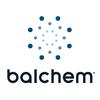Effect of Heat-Treatment on Nutritional and Immune Factors in Bovine Colostrum
Published: June 5, 2013
Summary
Studies have demonstrated that heat-treating colostrum at 60°C for 60 minutes results in a significant reduction in colostral bacteria counts with no overall reduction in colostral IgG concentrations. Preweaned calves fed HT colostrum have enhanced efficiency of absorption of IgG and reduced morbidity. Despite these benefits, limited research exists to describe if the heat-treatment process h...
Related topics:
Authors:

Recommend
Comment
Share
5 de junio de 2013
As a routine practice nobody will heat colostrum at 60 0C for 60 minutes as then it will coagulate. In India a coagulated colostrum cake is sold in the market and it is believed that the product might be nutritious but devoid of immunological properties unique to colostrum. In fact we are looking for a cost-effective method to dehydrate colostrum. here are conflicting reports in the literature about efficacy of standard spray drying technique and laternate methods have been proposed but these are quite expensive.
Prof. A. Samad
Recommend
Reply
5 de junio de 2013
this is very important and interested paper as the findings are against traditional methods but all research focused the betterment of calves as highest mortality rate in calves is in their early days of life. i feel it is a good try by the others and work must continue in this direction as the target is to maintain the benefits of clostrum and lowering the mortality rate in off springs
Recommend
Reply

5 de junio de 2013
Dear Professor Samad,
Many farms in North America are successfully heat-treating colostrum to feed to calves. If you would like to contact me directly, I can email you several studies demonstrating how this works, and that the calves are in fact healthier.
If you are interested in creating powdered (spray dried) colostrum replacers, this is also being done by several North American manufacturers and can be very successful. I can send you a review of many studies on this as well. Or, if you are interested, I could put you into contact with one such manufacturer who has been doing this for many years.
My email is: godde002@umn.edu
Most sincerely,
Sandra Godden
Recommend
Reply
Feikema Feed Solutions
6 de junio de 2013
Dear Sandra,
Most possible you already have seen the commercial colostrum pasteurier ColoQuick, a Danish product. Using this system, your discussed theory is already in practice and the machine is available in many countries. We are commercialising the Colouick system in Poland, and the early adopters there are very happy with the system.
Best regards,
Jan Feikema MSc.
Recommend
Reply
4 de julio de 2013
04/07/2013 Conclusion of this interesting work : "Since the HT procedure did not consistently inactivate the AP enzyme in colostrum samples, this test does not hold potential to be used as a monitoring tool for colostrum HT programs on dairy farms."
Milk ALP is usually totally inactivated after such heat treatment (60°C for 30 min). However, in colostrum there are many different ALP: exogenous ALP from bacteria, mostly seric ALP which is pasively transferred in colostrum, and the true milk ALP. The sensitivity to heat treatment of these ALP range from very sensitive (milk ALP) to heat resistant (some bacterial ALP),the seric/intestinal ALP being intermediary.
So, in order to control the efficient pasteurization of colostrum it is necessary to use a strictly specific test for the milk ALP. Such a test has been developed using a monoclonal antibody which capture specifically the milk ALP. Such a test has been developed using a monoclonal antibody which capture specifically the milk ALP of the sample. For further informations see the IDBiotech website (http://www.idbiotech.com/content/8-alkaline-phophatase-ALP-milk-cheese-colostrum-fluorophos)
Recommend
Reply
1

Would you like to discuss another topic? Create a new post to engage with experts in the community.




.jpg&w=3840&q=75)








